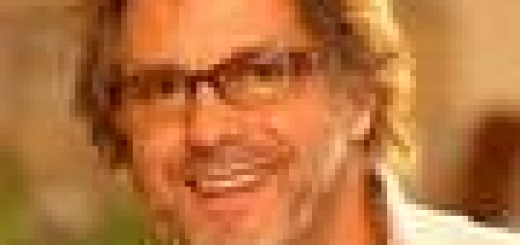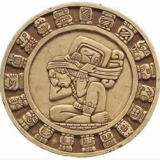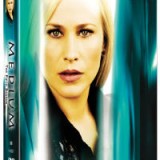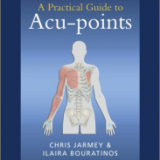The Tarot of the Revelation: A Revealing Look at the Spiritual Side of Tarot
“The Tarot of the Revelation” by Dr. Christopher Earnshaw is, for lack of a better term, a thought-provoking read. Written perhaps more for those who have a background in Tarot and/or religion and/or the Bible, it’s a book that manages to appeal to someone like myself – a person who has a deep interest in each of those subjects but who only possesses a beginner’s level of knowledge.
Earnshaw’s book is based on Edgar Cayce’s 1930’s interpretation of the Bible’s Book of Revelation, both of which are published within this book. For those unfamiliar with Edgar Cayce, he was an American psychic responsible for the creation of the Atlantic University and the Association for Research and Enlightenment (A.R.E.). A man who is associated with the term “psychic diagnostician” and who gave over 14,000 readings in the course of approximately forty years, Cayce was important enough to have the Edgar Cayce Centre created in Japan – a center that has Earnshaw as its current director.
The book is comprised of five sections. In these sections one gains insight into such topics as Gnosticism, Kabbalah, the history of Tarot, the history and importance of the Book of Revelations, numerology in the Book of Revelation, and background information about Cayce and the spiritual guidance available from his readings. One is also presented with seven “exercises for spiritual growth” and four examples of Revelation layouts/spreads. References abound to help Earnshaw make his case for drawing a connection between the Book of Revelation and the Tarot.
Earnshaw draws the parallel between the Fool’s Journey of the Major Arcana and the story of John’s enlightenment and God’s plan for mankind. The Minor Arcana is described as a set of tools to be used for one’s own spiritual development. Key words associated with the cards are also given as is a description pertaining to the relationship of the four elements (air, fire, water, and earth) to the four suits of the Minor Arcana.
While there are descriptions of the traditional interpretation of Tarot cards, its Earnshaw’s detailed listing of his new interpretations that help make his point. Each description also includes a “spiritual lesson” that’s a quote from Cayce’s readings along with the Greek text, pronunciation, and English translation that “is the teaching from the Bible for that card.”
The book includes a number of additional valuable insights – more than I can possibly give mention to within this review. Earnshaw also addresses a number of questions that are often asked by people who are skeptical or leery of Tarot. Such questions include “Does the Bible forbid divination?” and “Is the Tarot a tool of the Devil?” He even provides tips on how to give better readings.
Earnshaw has created his own deck of Tarot cards that he’s designed to be used for “regular” readings as well as to serve as a tool for one’s own spiritual growth. His cards have been “stripped away [of] all the superfluous [metaphysical] symbolism to show the original images as given in the Bible.” They feature the traditional numbering system as well as his newly devised Tarot of the Revelation system. Several of the card names have been changed and the order of the cards has been slightly altered to “correspond to the teaching and images in the Book of Revelations.” He literally refers to his cards as the “visual version of the Book of Revelations.”
While the flow of the book could be improved upon, the amount of information that is conveyed in the book makes up for such an oversight. I personally think that Earnshaw does a good job of making the connection between the Book of Revelations and the Tarot. Perhaps someone more knowledgeable about Tarot, religion, and the Bible would detect flaws in his reasoning. I invite others to read The Tarot of the Revelation by Dr. Christopher Earnshaw to decide for themselves as to the validity of his conclusions. Either way, it’s an interesting book that provides a unique perspective on Tarot.
Donna McLaughlin Schwender is the “soul proprietor” of One-Eared Dog, Ink. As a freelance writer living in upstate New York, she can be reached at schwender@aol.com.







